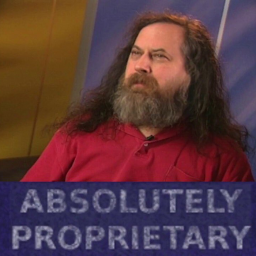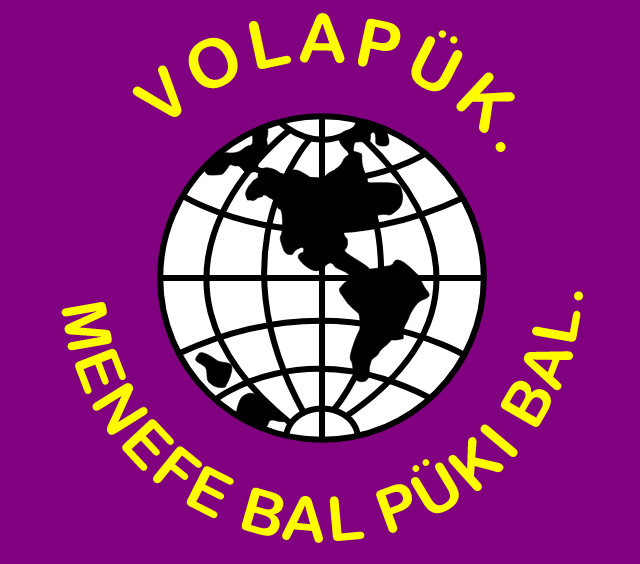“I use Linux as my operating system,” I state proudly to the unkempt, bearded man. He swivels around in his desk chair with a devilish gleam in his eyes, ready to mansplain with extreme precision. “Actually”, he says with a grin, "Linux is just the kernel. You use GNU+Linux!’ I don’t miss a beat and reply with a smirk, "I use Alpine, a distro that doesn’t include the GNU coreutils, or any other GNU code. It’s Linux, but it’s not GNU+Linux.
The smile quickly drops from the man’s face. His body begins convulsing and he foams at the mouth and drops to the floor with a sickly thud. As he writhes around he screams “I-IT WAS COMPILED WITH GCC! THAT MEANS IT’S STILL GNU!” Coolly, I reply “If windows was compiled With gcc, would that make it GNU?” I interrupt his response with “-and work is being made on the kernel to make it more compiler-agnostic. Even you were correct, you wont be for long.”
With a sickly wheeze, the last of the man’s life is ejected from his body. He lies on the floor, cold and limp. I’ve womansplained him to death.
I have read this a hundred times and it’s still as beautiful as the day I first read it.
First time for me — I look forward to finding it again someday
Beautiful
brought tears to my eyes
Also, Unix ≠ Linux.
It’s only called UNIX if it comes from the Santa Cruz region of California, otherwise it’s a sparkling POSIX.
deleted by creator
Technically, no, indeed. On paper, most (outside UNIX purists) refer to it (and MINIX) as Unix-like, as they don’t share much from UNIX outside the underlying philosophy. Ritchie himself still thought of Linux as mostly Unix in essence. Same kind of Ayckchyually, basically lol
Linux is not Unix
That’s what i said.
Let me rephrase :-)
Linux Is Not UniX
🙃
No, you said Linux is not equal to Unix, which is also technically correct.
No, he said Unix is not equal to Linux. xD
I can see the value of this. Linux \not \in Unix, and also Linux \not = Unix.
deleted by creator
given Android, it might even be that most linuxes aren’t GNU/linux
When Android came out, it really hit this and the limits of the GPLvII home for me
And not all GNU is Linux! Beyond the world famous GNU Hurd, there’s also Debian GNU/kFreeBSD, and Nexenta (GNU/Illumos, which is the OpenSolaris kernel).
I think the most esoteric of them, though, is GNU Darwin (GNU/XNU). Darwin is the open source parts of OS X, including its kernel, XNU. There used to be an OpenDarwin project to try to turn Darwin into an actual independent operating system, but they failed, and were superseded by PureDarwin, which took a harder line against anything OS X getting into the system. GNU Darwin took it one step further and removed just about all of Darwin (except XNU) and replaced it with GNU instead.

Android is exactly why I think it’s important not to ditch GNU in GNU/Linux. I don’t care about codelines, I care about the philosophy.
Philosophy probably did play a significant role: Google could have chosen BusyBox, which is GPL licensed, if their concern was solely the GNU user space’s comparative bloat.
The GNU project gave birth to and spread the idea of free software worldwide. Would they not have started with the GNU operating system (they wrote a LOT of code) and doing activism then free software would surely not exist in the magnitude it does today.
The Linux kernel would not be this mainstream at all. Spiritually, this makes every popular free OS a GNU system. Even BSD was only freed because Stallman explicitly requested it. Credit where credit is due.
deleted by creator
I was not talking about the technical aspects, although there is much more GNU code than Linux code in most GNU/Linux distros.
doesn’t change how Linux should be named or referenced
Of course the kernel should be referred to as Linux, anything else would be inaccurate :)
deleted by creator
the implication that any popular piece of libre software owes anything to Stallman by the mere virtue of being libre is totally wrong.
Considering Linux: Linux was proprietary at first, until Torvalds was inspired by the free software movement to free it, even using GNU’s GPL. He later said that making Linux open source was the best decision he ever made, and I’m pretty sure that this would not have happened without the popularity of GNU and the movement reaching him. Linux would’ve been just another small proprietary kernel. So Torvalds owes a lot to Stallman.
Also, without GNU, Linux would not have been practically usable. Only after the hard work of combining Linux with the already huge codebase of GNU could Linux be meaningfully used and become popular.
In fact, Stallman’s version of “open” is deeply intertwined with the American version of what it means to be “free” politically
Well, “open source” gives you exactly the same freedoms as “free software” gives you, so proponents of “open source” can’t be that far off ideologically.
it has manifested so many times that there are several open projects with the entire goal of not using GNU components, code or licenses.
The code is already there and it’s usable. Not using it because you don’t like the person/organization seems a bit… misguided.
deleted by creator
What a lazy response. You do realize that only one paragraph was an argument for calling it GNU/Linux and the rest of the comment regards other topics you yourself brought up in your last comment? Obviously it is not worth talking to you any longer, not because of diverging views but because of your manners…
deleted by creator
Arguably yes, but none of that is a good reason to put GNU in the name. I don’t think even Stallman argued that Linux distributions should use the name GNU to give credit to GNU’s influence.
The reason always given is a different one: it’s because distros traditionally took a lot of code from the GNU project, which is a different matter. That reasoning does make some kind of sense, even though I don’t fully agree.
It’s not that they “took a lot of code from the GNU project”, it’s that “Linux” is the kernel, which is just the core of the OS, by itself it’s not very useful. All the stuff around it that constitutes the rest of the operating system, like the command line and the vast majority of the commands you might run from there, are the GNU project. And I’m not even getting into desktop environments.
GNU wants people to believe that Linux distros took the GNU project, replaced the unfinished GNU Hurd kernel with Linux, and called it a day. But distros collected a lot of other stuff too.
XFree86 and various window managers (back in the early 90s there were no free/open source desktop environments yet; KDE (1996) was the first I think, or at the very least earlier than Gnome. I don’t know what you mean by “And I’m not even getting into desktop environments.”: the way I see it, the topic X and everything running on it doesn’t exactly support your point.
Editors vi and vim are not from GNU, and neither are mail clients Pine and Mutt, and the popular pager less.
There was probably quite a lot of BSD code in Linux distributions too.
So, I agree that calling a Linux distribution Linux is perhaps not entirely correct, but calling it GNU/Linux gives too much credit to GNU and too little to all the other people who wrote software that got included in Linux distros. GNU thinks their collection of software is essential enough to be included in the name, exclusively, and I don’t agree. Don’t get me wrong, GNU does deserve respect, and a lot of it, for all their accomplishments and contributions to the free source world in general and Linux distributions more specifically. But their insistence on the name GNU/Linux doesn’t seem the best way to get that respect. It has always felt somewhat childish to me.
At the same time, no one is stopping the GNU project from creating their own operating system distribution using their userland tools and the Linux kernel, and calling it whatever they want, including GNU or GNU/Linux or GNU Guix System or whatever, I don’t care. It would be quite hypocrytical if they wouldn’t include Linux in the name though, since including Linux is equivalent to how they’re asking others to include GNU.
XFree86 and various window managers (back in the early 90s there were no free/open source desktop environments yet; KDE (1996) was the first I think, or at the very least earlier than Gnome.
As a point of historical interest, XFCE actually holds the title of the oldest extant DE project; it beat KDE to first release by about a year.
KDE was also famously not entirely open source when it was founded (Qt was closed until v2), which is why GNOME was founded (initially by the GNU Project) exactly for this reason.
I mostly agree with you, but I want to add that GNU was the leader from the start with the aim to create a complete, integrated operating system, rather than just a bunch of unrelated programs tossed together. It was not important to them that all the code was written by GNU, more so that there was a complete free system.
The idea was that one project worked on the display server, another on the desktop environment and so on, with the intent that all come together as “GNU”.
And then Linux came and took the name of what GNU anticipated to become.
Honestly when I first read that I just assumed that ChimeraOS decided to go in an new direction. Also it’s not like ChimeraOS is some small super niche distro it seems relatively popular.
Also, on their main page:
Chimera aims to eliminate legacy cruft where possible to deliver a modern, general purpose, fully featured operating system that is simple but complete.
While on their Community page:
Our primary means of communication is IRC. […] We ask you to refrain from using advanced Matrix features, such as reactions, editing, message removal, markup and multi-line messages while using the chat. This is because users on IRC side will either not see that or it will clutter the channel. Stick to simple, plain text messages, like you would if you were on IRC.
Do you think they’re aware of the irony of relying on crusty old IRC while touting about Linux having legacy cruft and their code being better?
@entropicdrift would you mind elaborating how the choice of a chat protocol is connected to technical aspects of an operating system? i feel like i’m not galaxy brain enough for that
It’s just an ironic contradiction of philosophy.
Over on the OS side they’re dedicated to making a fresh start and leaving behind crufty old standards, but on their chat server they’ve limited their chat tech to the capabilities of IRC, a chat protocol so old it pre-dates Linux.
IRC is perfect, that is why it no longer evolves.
@entropicdrift considering how universal IRC is for open source and how other solutions are persistently lacking for the purpose (either by being proprietary, lacking decent clients, having embarrassing protocol decisions, being obscure, etc), there isn’t really much other choice (that’s not to say IRC is anywhere close to without flaws but it’s simple, low barrier of entry, and resilient)
Yes, officer. This blasphemer right here.
I would argue that Android has very little to do with Linux. You don’t even have to go far into the quirks of the userland, the kernel is a heavily modified flavor of it to which the linux documentation simply does not apply, or not really accurately.
With recent versions it might be better now, but holy guacamole it is very bad in those before that, basically it’s filled with nonstandard modifications (well, probably depends on what you call standard, though…)
android works on upstream kernel fine. in fact, you can even run a linux chroot inside of a booted android perfectly fine. android, especially newer ones, really arent that far off normal linux at all anymore, hell Waydroid is literally running android inside of an LXC container with some patches to get proper integration with the host working
Removed by mod
These examples didn’t actually clear anything up for me 🙃
The fsf website actually separates distros. There is GNU/Linux and nonGNU/linux
nobody is saying that linux distros that don’t have the gnu core utils needs to be called GNU/Linux
And nobody is saying that they do. But there are plenty of people who are unaware that non-GNU Linuxes exist.
But there are plenty of people who are unaware that
non-GNULinuxesexist.Also true. Feel free to make an informational post on the matter.
And plenty who don’t know you can GNU without Linux.
After 33 years of development, GNU/Hurd still may not be ready for production use, but it’s not quite dead 💀 🦜
So there’s still hope for StarCitizen.
Ofc if they dont know GNU 😆
Its nonGNU/linux
Blasphemy!
/s

















